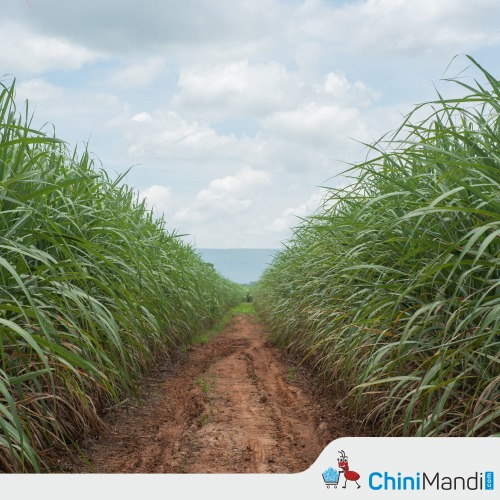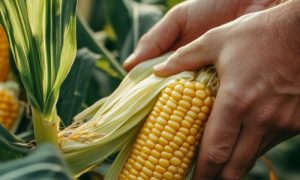Indian government and ISMA pave way for enhanced farmer prosperity in sugarcane production

The Indian Sugar & Bio-energy Manufacturers Association (ISMA), in collaboration with government bodies, held a major brainstorming session in New Delhi to address the challenges of India’s sugarcane sector. Key outcomes included a six-point action plan, proposals for climate-smart farming and a National Mission on Sugarcane, and strong emphasis on research collaboration, innovation, and farmer-focused solutions.
The Indian Sugar & Bio-energy Manufacturers Association (ISMA), in collaboration with the Department of Food & Public Distribution (DFPD) and the Ministry of Agriculture, convened a strategic Stakeholders Brainstorming Session on “Enhancing Sustainable Sugarcane Production in India” in New Delhi. The event brought together senior government officials, researchers, industry leaders, and key stakeholders to address the current challenges facing India’s sugarcane sector and to outline a clear path forward.
Challenges & need to support farmers
At the heart of the meeting was a shared commitment to improving the lives of Indian farmers and ensuring the continued growth of the sugar and bio-energy industry. India’s position as the world’s second-largest sugarcane producer is both a strength and a responsibility. The sugarcane sector, which supports over 55 million farmers and workers with 535 operational mills contributing more than ₹1 lakh crore annually in cane payments, is a cornerstone of rural livelihoods and national economic strength. However, the sector has recently faced declining yields, shrinking cultivation areas, and increased pest outbreaks, all of which have affected farmer incomes and industry stability.
Leadership calls for systemic change
Gautam Goel, President of ISMA, opened the event with his welcome address, where he highlighted the urgent need for systemic change. He outlined a six-point plan to address these issues, focusing on varietal diversification, genome innovation, decentralised seed systems, climate-smart farming, policy reforms, and the creation of a National Mission on Sugarcane.
“The Indian sugarcane industry is at a critical juncture. The setbacks of this season are not isolated events, but clear signals that we must rethink our entire approach to productivity and sustainability. Our six-point roadmap is designed to address the underlying issues—by promoting new, disease- and climate-resilient varieties, strengthening seed systems at the local level, and bringing modern farming practices to every corner of the country. We are also calling for a National Mission on Sugarcane to unite all stakeholders—government, research, and industry—under a single, coordinated effort. If we act together, we can secure better incomes for farmers, greater stability for the sector, and a more sustainable future for all,” he said.
Government support and research collaboration
Aswani Srivastava, Joint Secretary (Sugar) in the Department of Food and Public Distribution (DFPD), Government of India, underscored the commitment to farmer prosperity by acknowledging the sugarcane sector’s challenges while highlighting its inherent strengths.
Srivastava stated, “The sugarcane sector is facing real pressures, from unpredictable weather and disease outbreaks to changing economic conditions. Yet, we have a strong foundation to build on—clear policies, leading research institutions, and the hard work of our farmers. The partnership between ISMA and ICAR-Sugarcane Breeding Institute is a great example of what can be achieved when research and industry work closely together. By focusing on the development and spread of location-specific, climate-resilient varieties, and by strengthening our seed and nursery systems, we can help farmers achieve better yields and more secure livelihoods. We must continue to deepen these partnerships, ensuring that every innovation reaches the field and benefits those who need it most, the farmers.”
Innovation & unified action
Deepak Ballani, Director General of ISMA, reaffirmed the association’s commitment to driving innovation and policy dialogue. He also emphasised the importance of regular forums where knowledge can be shared and practical solutions can be developed together to drive collective action.
“The future of Indian sugarcane depends on our ability to work together and bring new thinking to old problems. Regular knowledge-sharing platforms like today’s session are vital for identifying what works and where we need to improve. By connecting farmers, scientists, policymakers, and industry leaders, we can speed up the adoption of better practices—whether it’s precision irrigation, disease monitoring, or the use of digital tools. Our goal is to make these innovations accessible to every farmer, so that productivity rises and risks are reduced. ISMA will continue to support these efforts, ensuring that the benefits of progress are widely shared,” he said.
A Platform for action, not just discussion
The session was moderated by Roshan Lal Tamak, Chairperson of ISMA’s Agriculture Sub-Committee, and who guided the discussions towards practical, actionable outcomes. Throughout the session, participants from government, research, and industry examined issues ranging from seed quality, good agricultural practices and mechanisation to policy reforms and the use of digital tools in farming. The discussions made it clear that coordinated efforts and strong partnerships are essential for delivering real benefits to farmers. By focusing on better seed systems, climate-smart practices, and the use of technology, these collaborations aim to help farmers achieve higher yields, reduce losses from pests and weather, and secure more stable incomes.
The event came to a close with Niraj Shirgaokar, Vice President of the Indian Sugar & Bioenergy Manufacturers Association (ISMA), delivering the closing remarks where he thanked all participants and emphasised the importance of moving from discussion to action. “Today’s session has shown the power of bringing together voices from across the sector. The ideas discussed—from varietal diversification to the proposed National Mission on Sugarcane—are not just theoretical; they are practical steps that can be put into action. Our farmers are at the heart of this effort, and every decision we make must be measured by its impact on their livelihoods. I am encouraged by the spirit of partnership and the shared sense of urgency that has emerged. Let us now focus on turning these ideas into results, with clear timelines and accountability, so that the benefits reach every farmer and the industry as a whole,” he said.
Mission-driven approach for sustainable future
The Stakeholders Brainstorming Session concluded with a strong consensus that the time for slow, incremental change has passed. The sector must now adopt a mission-driven approach, focusing on practical solutions that can be implemented at scale. The proposal for a National Mission on Sugarcane, along with other actionable ideas discussed, now enjoys broad support from across the industry.
ISMA remains dedicated to working with government, research institutions, and industry partners to deliver on this agenda. The association will continue to support innovation, knowledge-sharing, and policy reforms that strengthen India’s sugar and bio-energy sector, with a firm focus on improving the lives of farmers and ensuring the sector’s continued growth and contribution to national priorities.
To Read more about Sugar Industry continue reading Agriinsite.com
Source : Chinimandi














